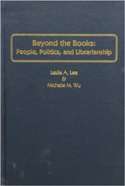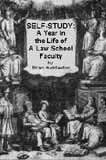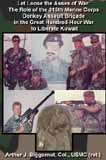One of my favorite authors, Michael Chrichton, died Tuesday. The Andromeda Strain was perhaps the first books that I was compelled to read straight-through, staying up as late as I could in college and then waking up to open it and continue the next morning. Later I read his late-1980s/early-1990s novels like Rising Sun and Jurassic Park. Since then, whenever his name comes up in casual conversations, I mention the fact that he was a graduate of Harvard Medical School which, for the most part, my fellow conversants do not know.
Nor do they typically know, until I inevitably inform them with the boring details, that he was also an active advocate and practitioner of various “New-Age” philosophies. Few folks who have read his novels know about his collection of non-fiction essays, Travels. Its one of my favorite books (though, I have to admit, I will now have to dig it out from whatever bookshelf or box I have stuck it in) and in it he writes about both his time at Harvard and his explorations into different new age things like aura-viewing and exorcisms (his personal experiences with both are detailed in different chapters in the book).
What to me is most fascinating is that he examined these new age beliefs with an open mind but was staunchly conservative in the scientific views expressed in his books, even besides his explicitly anti-anthropormorphic climate change novel “State of Fear”, a notable passage from Jurassic Park notes that the hubris of some of mankind’s belief that we can actually make significant changes in Earth’s climate is completely unfounded was brilliantly recited by the late Charleton Heston in this YouTube clip:
The concluding chapter in Travels is a lecture for some learned scientific society that he was invited to present, but which for some recent he didn’t actually go through with. He notes several historic instances of scientists who were later found to have falsified their results, but also points out that the weight of anti-paranormal arguments that are based on the inability of advocates to produce their purported results in a laboratory setting are reduced by counter-arguments based on the inability of artists and musicians to demonstrate similar results of their purported abilities when plopped down in a laboratory, surrounded by white-coated scientists, and connected to electrodes and compelled to conjure up the “art” and “music” that they claim they can create under less strenuous circumstances. I’ll have to dig that out and re-read it soon.
Wednesday, November 5, 2008
Subscribe to:
Post Comments (Atom)




No comments:
Post a Comment